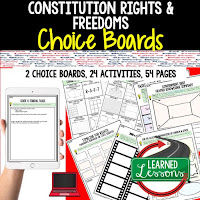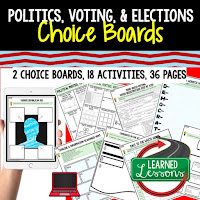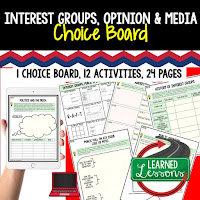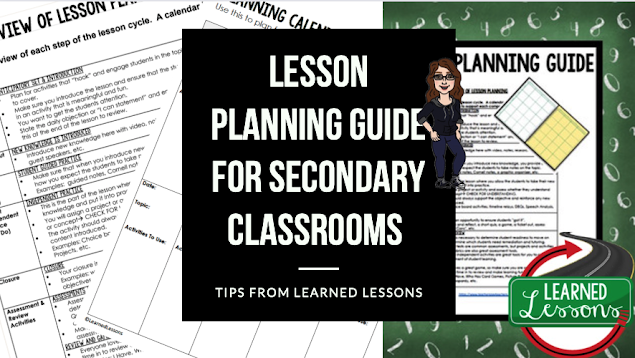Civics Activities for Differentiation in Secondary Classrooms
Choice Boards
Are you looking for a fun and interactive way to teach civics to your students? Try using choice boards! These civics choice boards provide students with a variety of activities and options to choose from, allowing them to explore topics such as government, voting, and citizenship in a way that suits their learning style. With activities ranging from writing prompts to creative projects, these choice boards are sure to engage your students and deepen their understanding of civics. Use them in the classroom or assign them as homework, and watch your students' interest in civics soar! Add differentiation to your classroom lessons with choice boards to cover content and keep your class engaged.
This is also a great option to go paperless or at least give students a paperless homework option.



- USA Fact and Symbols Activities
- Background of Government Activities
- Building a New Nation Activities
- Constitution Activities
- Legislative Branch Activities
- Executive Branch Activities
- Judicial Branch Activities
- Constitutional Freedoms and Rights Activities
- Citizenship and Justice Activities
- American Law Activities
- Politics, Voting, and Elections Activities
- Interest Groups and Public Opinion Activities
- International Relations Activities












VISIT MY STORE AND FOLLOW TO GET UPDATES WHEN NEW RESOURCES ARE ADDED
learnedlessonstpt@gmail.com
Thank you for your support! --Learned Lessons
Leaned Lessons Teaching Material












